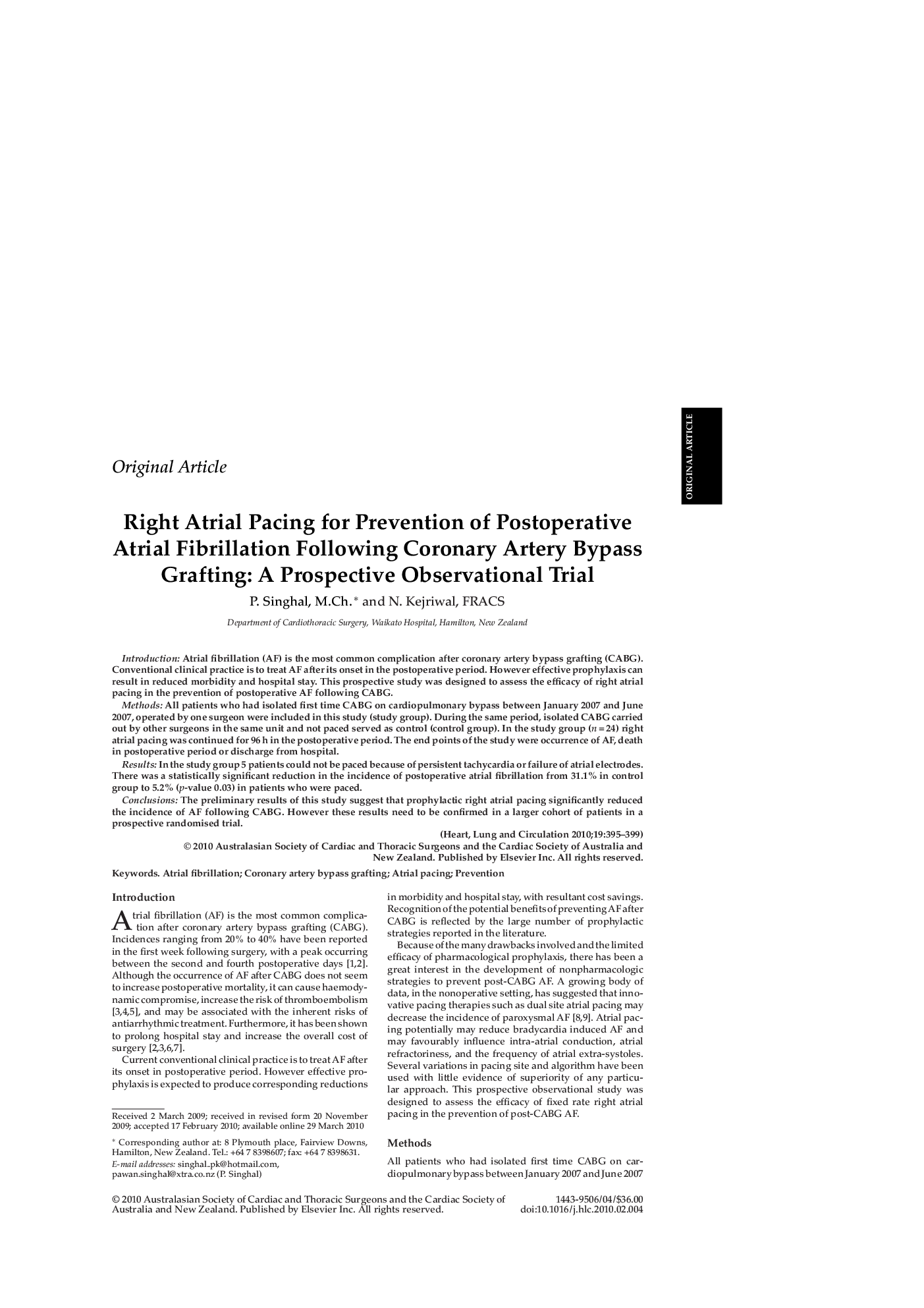| Article ID | Journal | Published Year | Pages | File Type |
|---|---|---|---|---|
| 2920757 | Heart, Lung and Circulation | 2010 | 5 Pages |
IntroductionAtrial fibrillation (AF) is the most common complication after coronary artery bypass grafting (CABG). Conventional clinical practice is to treat AF after its onset in the postoperative period. However effective prophylaxis can result in reduced morbidity and hospital stay. This prospective study was designed to assess the efficacy of right atrial pacing in the prevention of postoperative AF following CABG.MethodsAll patients who had isolated first time CABG on cardiopulmonary bypass between January 2007 and June 2007, operated by one surgeon were included in this study (study group). During the same period, isolated CABG carried out by other surgeons in the same unit and not paced served as control (control group). In the study group (n = 24) right atrial pacing was continued for 96 h in the postoperative period. The end points of the study were occurrence of AF, death in postoperative period or discharge from hospital.ResultsIn the study group 5 patients could not be paced because of persistent tachycardia or failure of atrial electrodes. There was a statistically significant reduction in the incidence of postoperative atrial fibrillation from 31.1% in control group to 5.2% (p-value 0.03) in patients who were paced.ConclusionsThe preliminary results of this study suggest that prophylactic right atrial pacing significantly reduced the incidence of AF following CABG. However these results need to be confirmed in a larger cohort of patients in a prospective randomised trial.
